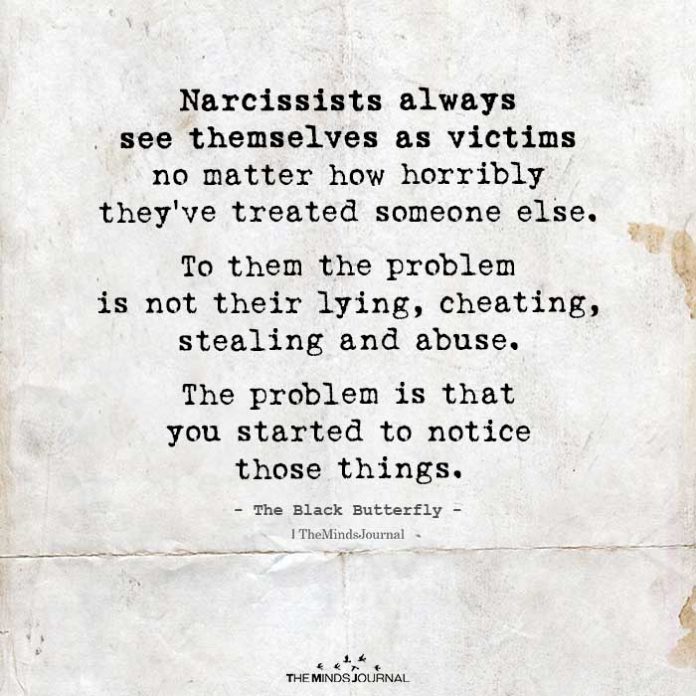Do you suspect that your wife is a narcissist and that it’s time that you should separate from her? This post is going to help you if you are thinking of divorcing the female narcissist, AKA, your wife, because dealing with female narcissists is nothing short of draining and dangerous even.
If you are married to a female abuser, much like their male counterparts, you’re in for quite the ride. Abusers, especially narcissists and borderlines don’t like it when a victim exercises their right to self-preservation and like it even less when you are married to them.
First, I’m not an attorney, but spend many years in law enforcement and dealing with restraining orders, judicial enforcement of custody exchange, and other matters, so I’ll pass on what I know. I also experienced this earlier in life and lost custody of my young daughter for many years. Therefore this is NOT legal advice, just one victim to another.
I will warn you about this, this could be the most trying time of your experience with the narcissist and it’s important to do it the right way in order to protect yourself, and especially children if involved, in the process.
Don’t let your anger or emotions get in the way of the goal, to divorce the abuser and move on with your life with as minimal effect on your rights as possible, and or, impact on your children.
- First of all, check with your particular state law as they vary to make sure you’re in compliance. Different states – even jurisdictions have different laws and procedures, so do your research.
- Second, watch what you read on the web regarding this subject, some of the information is good and some is not so good (my opinion only). The only place to know is through the help of law enforcement, social workers, and a good attorney (step two).
So beware of where you get your information. It could make all the difference in the world to a decent outcome.
Most important if you are suffering physical abuse, or you feel as though your life will be threatened (or if your children will be threatened); contact your local law enforcement agency, as well as a domestic violence shelter. Sometimes abusive partners will resort to violence, either harming you, the kids, or themselves.
PROTECT YOURSELF AND YOUR CHILDREN is the number one priority in these cases, NOT your property, money, etc. Stuff can be replaced, you’re life and your family can’t.
Related: 7 Signs of A Female Narcissist
Divorcing The Female Narcissist, Borderline, or other Abuser
Step One
One thing to do even before you get to the point of divorce is to document the narcissist’s or other abuser’s behavior. This is the predatory phase. Writing down their actions of their abuse will become very helpful when you reached step two.
If the abuser has been physically abusive, especially to you or the children, that needs to be documented as well. Police reports, emergency room visits, and social workers, all of it need to be categorized and written down in chronological order as possible.
When possible enlist the aid of social workers, and domestic violence shelter workers, for their guidance as well. When speaking with social workers, domestic violence shelter workers, and police, talk factually about the abuser’s behavior, and past threats.
One caveat you’ll likely run into especially when reporting domestic violence is that the female narcissist, borderline, and other abusers will likely try to smooth the police over by play-acting, or letting the police believe that YOU are the perpetrator, not the victim, so make sure you have the story together.
During cases of domestic violence, no matter how much you feel like retaliating, don’t.
Stand your ground, but if you have to leave the premises then do so. Another thing some victims have found useful is to use a cell phone to record their rants, threats, and actions to be able to prove their side of the story. Contrary to what people think this is legal and is a good tool to have when they try to pin everything on you.
When you speak to law enforcement let them know whether there are any weapons in the house (not a good idea if you have an abusive person anywhere on the premises), or other weapons.
If you can, while the process is moving forward, remove all weapons from the house and store them somewhere else, so that they are inaccessible to the abuser. This information will also be helpful especially when the writ of divorce is delivered by the court.

Step Two
If you haven’t already, it’s time to hire an attorney. No one can better advise you of your legal options than an attorney, whose likely deal with this type of relationship before, and can best formulate your petition for divorce.
If you cannot afford one, you might be able to find one to do a case pro-bono, or on some type of payment plan, but without one it’s much harder and leaves you in legal jeopardy.
Remember to bring all your evidence of abuse to the attorney, and pick a day for the appointment that you know your absence will be unnoticed by the abuser. Unless you know there is an immediate threat, leave the children at home, at school, a friend’s house, or with a trusted family member.
Children can be very traumatized by divorce and until you can talk with them, they don’t need to know all the specifics now, even if they know abuse is taking place.
Related: The Female Facade: Female Narcissists May Be Statistically Uncommon, But Highly Dangerous
Step Three
Once the attorney is hired and you are moving forward with the divorce, it’s time for the notification to be delivered. Again, no one knows the abuser like you do and how they will react once they know you’ve decided to leave them. At this point, you should move with extreme caution. This cannot be overstated.
During my career, I witnessed more than a few cases where the violence escalated once the paper is delivered.
Normally the writ of divorce will be delivered by a court office (process server), or better the local sheriff. A process server has the same authority, but in some cases is not a police officer, but the police can assist in this area by the court – or process server’s office – requesting they be present with the process deliverer when the writ is served.
If you know the abuser will react violently make sure you are in a safe, and secure location with friends, and family, when this happens.
DON’T BE AT HOME WITH THE ABUSER! If the abuser is handed the writ for divorce at their place of work, or other location, make sure you are not at home when they arrive after work.
Again, this is only if you think they will react violently when they arrive home.

Step Four
For the duration of the divorce proceedings, you should leave the abuser and go NO CONTACT. Speak only through legal counsel. During the process, the abuser may want to sweet talk you and try to hoover you back into the relationship.
Don’t fall for it. Let the attorneys be the moderators. If the abuser hasn’t been abusive towards the children – if any – your legal counsel may sort that out and advise you to leave them with the mother. UNDER NO CIRCUMSTANCES should you make an effort to remove the children on your own without letting her know.
A good attorney will advise you of this as well. You don’t want to appear on the bad side of this process, and remember, the abuser is skilled at turning anything you do into a “crime” and using it against you.
Related: An Open Letter To All The Female Narcissists And Manipulators
Therefore, such an action will only play out to your detriment. If you feel that the children are in immediate danger, or if she may leave to some unknown location and take the children with her to halt the proceedings, have your attorney petition the court for temporary custody, restraining orders, etc., until the court decides the case. However, in NO CASE take the law into your own hands.
Again, be very careful in leaving the female narcissist, borderline, or other abuser. This is especially true when married and when children are involved. However, if you gain good legal counsel to protect yourself and your rights, the process can go a lot smoother.
Want to know more about divorcing a female narcissist or divorcing the narcissist? Check this video out below!











Leave a Reply